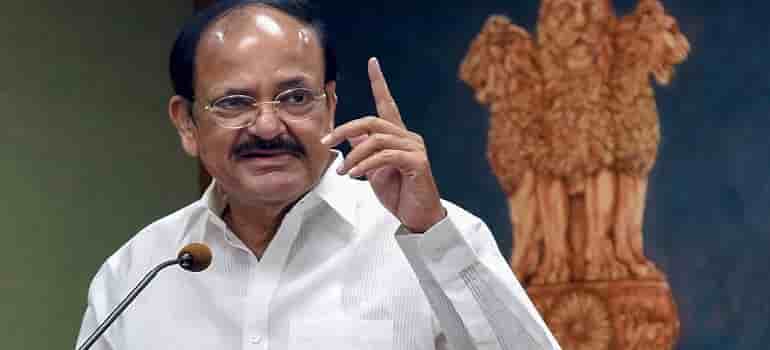
The Vice President of India, M. Venkaiah Naidu has called upon town planners to make sustainable solutions such as harvesting solar energy, enhancing green cover and water conservation an essential part of town planning.
Naidu, while addressing the 4th Resilient Cities Asia-Pacific (RCAP) Congress 2019 organized by the International Council for Local Environmental Initiatives (ICLEI). Here today, asked municipal administrators to accord priority to tree plantation, solid waste management, protection and rejuvenation of water bodies.
Observing that a massive migration from rural to urban areas has become a reality, the Vice President said that education, entertainment, enhanced medical facilities and employment were the main drivers of such migration. He asked for collaborative efforts of governments at state and centre to reduce the divide by providing urban amenities in rural areas.
Opining that economic growth must take environmental protection into consideration, Shri Naidu observed that dependency on fossil fuel must be reduced and new forms of energy sources such as solar must be explored. ‘It cannot be business as usual as far as development is concerned,’ he added
The Vice President called upon all the representatives of provinces and cities of various countries presented to adopt multi-dimensional and innovative approaches to ensure low emissions oriented development. He urged them to promote public transport in cities to reduce congestion and air pollution.
Observing the green infrastructure was the need of the hour, he stressed the need to promote resource efficiency to achieve climate resilient urban development. Moving away from traditional metrics of measuring development, Shri Naidu called for new urban infrastructure that was low-carbon, green and climate resilient. He also called for measures to ensure that urban solid waste is converted wealth by learning from the best practices followed globally.
Saying that one must draw inspiration from our cultural roots, especially the civilizational values that revered and urged us to protect natural resources, the Vice President said that adopting green solutions, providing good governance and building urban resilience was the way forward.
Observing that rise in global temperature was going to result in several aspects of human activity including farming, Shri Naidu wanted planners to factor in changing climate and its likely impacts in all development strategies. He called for up-scaling climate mitigation measures to reduce climate-related risks in the future.
Pointing that more than 60% of the world’s population resides in Asia and the region was most affected by natural disasters, the Vice President said that governments in Asia must build climate resilient habitats. He further said that Asian cities must emphasize biodiversity and healthy, functioning ecosystems. With pollution reaching hazardous levels in cities, utmost priority needs to be accorded to promote clean and green technologies, he added.
The 4th Resilient Cities Asia-Pacific (RCAP) Congress 2019 organized by the organized by the International Council for Local Environmental Initiatives (ICLEI) in association with South Delhi Municipal Corporation witnessed the presence of more than 200 delegates from around 30 countries.
The Chargé d’affaires, Embassy of Switzerland in India, Ms. Tamara Mona, the Deputy Head of Delegation of the European Union to India and Bhutan, Mr. Raimund Magis, the Deputy Secretary General of ICLEI-Local Governments for Sustainability, Shri Emani Kumar, the Commissioner, South Delhi Municipal Corporation, Shri Puneet Kumar Goel, Town planners, Mayors from countries such as Bhutan, Japan, Switzerland, Malaysia, Nepal, Mongolia, Vietnam, European Union, China and other dignitaries were present at the venue.

